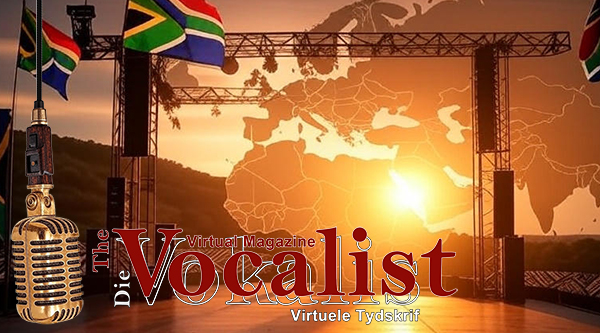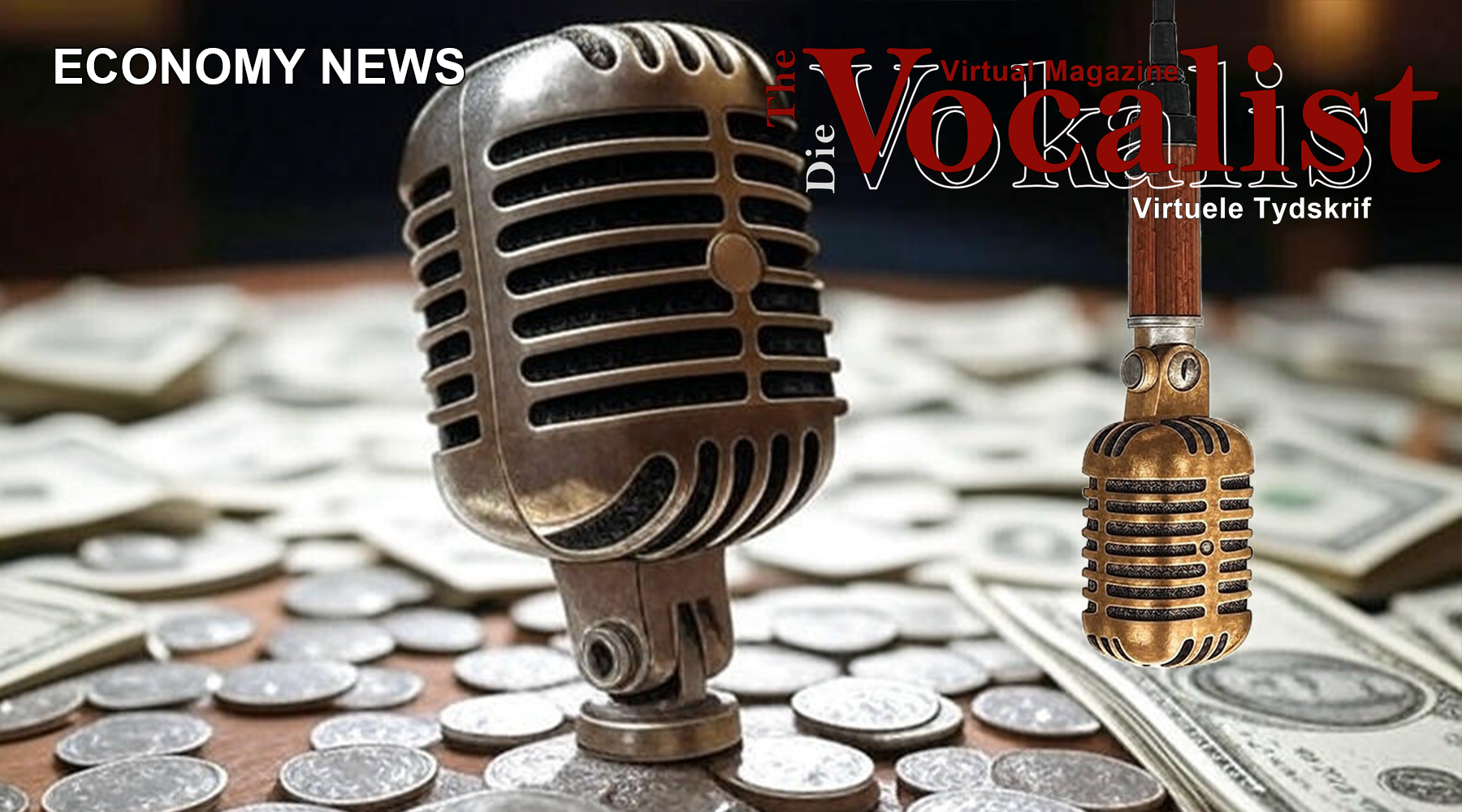A New Era for South African Music
The Cape Town International Jazz Festival has long been a cornerstone of South Africa’s vibrant music scene, drawing thousands of fans each year to celebrate the rich tapestry of jazz and its many influences. Known affectionately as “Africa’s Grandest Gathering,” this iconic event has built a reputation for showcasing both local talent and international stars. But in 2025, the festival is set to redefine the live music experience with a bold leap into the future: the integration of virtual reality (VR) technology. Announced on July 25, 2025, this groundbreaking development promises to elevate the festival to new heights, blending cutting-edge innovation with the soulful sounds of jazz.
This move marks a significant moment for South African musicians and the broader industry, as technology continues to reshape how music is created, shared, and enjoyed. With the festival just months away, the introduction of VR experiences has sparked excitement and curiosity among fans, artists, and industry insiders alike. What does this mean for the future of live performances in South Africa? Let’s dive into the details of this transformative initiative and explore its implications.
The Big Reveal: VR Comes to Cape Town
The announcement came straight from the festival’s organizers, who unveiled their plans to incorporate VR technology during a press conference held in Cape Town on July 25, 2025. This wasn’t just a minor update to the festival’s lineup or logistics—it was a clear statement of intent to push boundaries and embrace the digital age. The decision reflects a growing trend in the global music industry, where technology is increasingly used to enhance audience engagement and create unforgettable experiences.
According to the organizers, VR headsets will be available for attendees to use during select performances, offering a range of immersive options. Fans will be able to watch shows from multiple angles—whether it’s a bird’s-eye view of the stage, a close-up of the musicians at work, or even a perspective that places them right alongside the performers. Beyond simply watching, the technology will include interactive features, such as virtual backstage tours and opportunities to explore the festival grounds in a digital space. For those unable to attend in person, there’s talk of a limited VR streaming option, though details are still being finalized.
The timing of this announcement couldn’t be more significant. With just two days having passed since the reveal, the news is as fresh as it gets, aligning perfectly with the festival’s reputation for staying ahead of the curve. It’s a bold step that positions Cape Town as a leader in the intersection of music and technology on the African continent.
Immersion Redefined: What VR Brings to the Table
So, what can festival-goers expect when they slip on a VR headset in 2025? The experience promises to be nothing short of revolutionary. Imagine standing virtually shoulder-to-shoulder with a saxophonist as they deliver a soul-stirring solo, or watching a pianist’s fingers dance across the keys from an angle you’d never see in a traditional seat. The technology will allow attendees to customize their viewing experience, choosing perspectives that suit their preferences and immersing themselves in the music like never before.
The VR setup isn’t just about visuals, either. Advanced audio engineering will complement the visuals with spatial sound, making it feel as though the music is enveloping you from every direction. For jazz—a genre known for its improvisation and intimacy—this could deepen the connection between performers and their audience, bridging the gap between the stage and the crowd in ways that were previously unimaginable.
The interactive elements add another layer of excitement. Virtual meet-and-greets will let fans “meet” their favorite artists in a digital space, while behind-the-scenes tours will offer a glimpse into the preparation and artistry that go into each performance. These features cater to a younger, tech-savvy generation of music lovers while preserving the festival’s commitment to celebrating creativity and culture.
Enhancing the Festival Experience
For attendees, the introduction of VR technology is more than a gimmick—it’s a game-changer. The festival has always prided itself on delivering memorable moments, from surprise collaborations to electrifying sets under the Cape Town sky. Now, VR adds a new dimension to that legacy, offering a personalized and immersive experience that traditional concerts can’t match.
“We’re not just putting on a show; we’re creating a world for people to step into,” one of the festival’s directors shared during the announcement. “This technology lets us bring the music closer to our audience, whether they’re here in person or joining us from afar.” The sentiment reflects a broader goal: to make the festival more inclusive and accessible, while maintaining the magic of a live event.
For South African musicians, this is an opportunity to shine on a new stage—literally and figuratively. The VR platform will showcase their talents to a global audience, amplifying their reach and influence. It’s a chance to experiment with how their music is presented, blending traditional jazz elements with futuristic tools to captivate listeners in innovative ways.
Setting a Precedent: The Broader Impact
The implications of this development extend far beyond the festival itself. As South Africa’s music industry continues to grow, the adoption of VR at such a high-profile event could set a precedent for others to follow. Festivals across the continent—and indeed, the world—may look to Cape Town as a model for integrating technology into live performances.
This isn’t just about keeping up with global trends; it’s about leading them. South Africa has a rich musical heritage, from the rhythms of mbaqanga to the smooth sounds of Cape jazz. By pairing this legacy with cutting-edge technology, the festival is positioning the country as a hub for innovation in the arts. It’s a signal to the industry that South African musicians and event organizers are ready to embrace the future without losing sight of their roots.
The move also highlights the growing role of technology in music worldwide. From AI-generated compositions to streaming platforms tailored for local artists, the tools available to musicians are evolving rapidly. VR represents the next frontier, offering a way to connect with audiences in an increasingly digital world. As this technology becomes more affordable and widespread, it’s likely we’ll see it adopted by smaller venues and independent artists, democratizing access to immersive experiences.
Voices of the Scene: Reactions to the VR Revolution
The response from the music community has been overwhelmingly positive. A prominent South African jazz guitarist expressed enthusiasm about the possibilities: “Performing is about sharing a moment with the audience. With VR, we can share that moment in a way that feels more personal, even if there are thousands of people watching.” The sentiment captures the potential for VR to strengthen the bond between artists and fans, despite the physical distance that often separates them.
Tech experts are equally optimistic. One analyst noted, “This could be a turning point for live music in Africa. If it works as well as they’re planning, other festivals will have to take notice.” The excitement isn’t limited to insiders, either—social media has been abuzz with fans speculating about how VR will enhance their favorite performances and which artists will make the most of the technology.
Of course, there are challenges to consider. Ensuring the VR systems run smoothly for thousands of attendees will require meticulous planning and robust infrastructure. Accessibility is another concern—while the festival aims to offer headsets to as many people as possible, cost and availability could limit participation. Still, the organizers are committed to addressing these hurdles, with early tests already underway to refine the experience.
Looking Ahead: The Future of Music in South Africa
As the Cape Town International Jazz Festival 2025 approaches, the introduction of VR technology stands as a testament to the power of innovation in the arts. It’s a bold experiment that could redefine what it means to attend a live music event, blending the physical and digital worlds into a seamless celebration of sound and creativity.
For South African musicians, this is a moment of opportunity—an invitation to explore new ways of reaching their audience and telling their stories. For fans, it’s a chance to experience jazz in a way that’s never been possible before, with all the intimacy and energy of a live show amplified by cutting-edge tools. And for the industry as a whole, it’s a glimpse into a future where technology and tradition coexist in harmony.
The festival may still be months away, but the buzz surrounding its VR debut is already palpable. As the countdown begins, one thing is clear: in 2025, Cape Town will not only host Africa’s grandest gathering of jazz lovers—it will also pioneer a new chapter in the evolution of live music. Whether you’re a die-hard jazz fan or a curious newcomer, this is one event you won’t want to miss, in person or through the lens of a VR headset.
Discover more from Vocalist
Subscribe to get the latest posts sent to your email.





